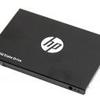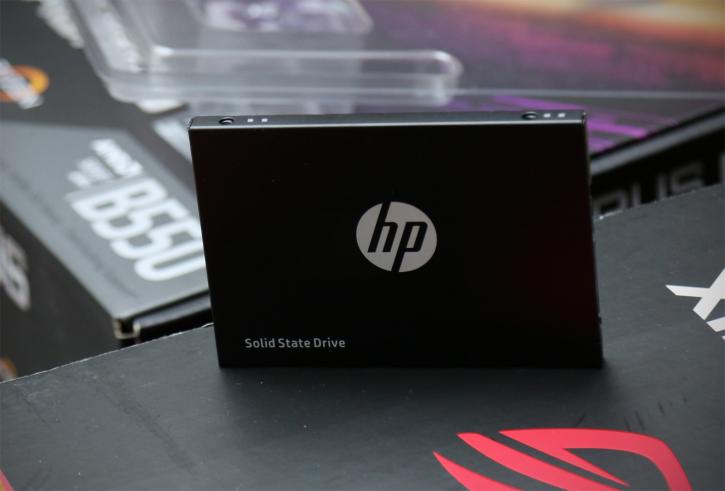Introduction
HP SSD S750 1TB 2.5" Review (SATA3)
Granted, NVMe SSDs are where it's at in this business. But add-in SATA3 based SSDs still can make a lot of sense for your movies, or game collection if priced right of course. BiWin, the company that fabricates HP SSDs (and other products), has more recently announced the HP S750 2.5-inch SSD Series. Available in 256GB, 512GB, and 1TB, these drives have been fitted with new 96-layer NAND and reach read speeds up to 560 MB/sec. Even the smallest version reaches 520 MB/sec on writes with IOPS 4K writes being in an 80K range. These SSDs are low lower, in idle they consume just 0.4 Watts and in full use roughly 2 Watts. The units are backed with a three-year warranty, the TBW values correspondingly in volume size are 160 TBW, 320 TBW, and 650 TBW for the 1TB model. I am awaiting confirmation on pricing.
The series offers decent enough speed (for a SATA3 unit) and remains competitive in pricing. As you guys know, we've been testing NAND Flash-based storage ever since the very beginning, and it is surprising to see where we have gotten. The SSD market is fierce and crowded though. While stability and safety of your data have become a number one priority for the manufacturers, the technology keeps advancing at as fast a pace as it does, the performance numbers a good SSD offers these days are simply breathtaking! You get between 450 MB/s to 500 MB/sec on SATA3 which is the norm for a single controller based SSD. Next to that, over the past year, NAND flash memory (the storage memory used inside an SSD) has become much cheaper as well. A really good SSD can be found under 25 cents per GB. With parties like Samsung, Toshiba and Micron the prices have now dropped towards and below the 20 cents per GB marker. This means that SSD technology and NAND storage has gone mainstream and due to the lower prices, the volume sizes go up as well. A couple of years ago a 64 GB SSD was hot stuff, then slowly we moved to 120 GB, last year 240 GB for an SSD in a PC was the norm, this upcoming year we'll transition slowly to roughly 1TB per SSD as the norm with sub 150 USD prices. With the market being so huge, fierce and competitive, it brought us to where we are today... nice volume SSDs at acceptable prices with very fast performance. Not one test system in my lab has a HDD anymore, everything runs on SSD while I receive and retrieve my bigger chunks of data from a NAS server here in the office. The benefits are performance, speed, low power consumption and no noise.
HP historically has been making use of Micron for the NAND memory (the company behind Crucial). These drives are based on vertically stacked NAND (also referred to as 3D NAND, even 96-layers) and are now available multiple capacities. With a low power design, this drive will be among the mainstream to fastest SSDs we have ever tested. It’s not just about performance though, these units manage 560 MB/s and write speeds of up to 520 MB/s with 4K IOPS of performance in the 75K ranges for both reads and writes. Paired towards a Proprietary but refurbished HP controller. The unit is making use of a dynamic SLC written buffer which will keep the TLC effect far away and keep performance high during high burst write workloads. HP guarantees this SSD for 3 years under warranty, that or 650 TB written.


